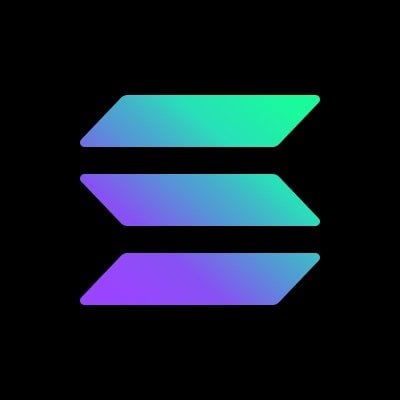Solana Renaissance: Ore Takes the Crown, How Did 34 Projects Break Through?
Author: Peng SUN, Foresight News
On the evening of May 6, the risk fund Colosseum announced the results of the ninth Solana Foundation Hackathon, the Solana Renaissance competition. This Solana Renaissance attracted significant attention, with over 8,300 participants from more than 95 countries/regions. Out of 1,071 participating projects, only 34 projects made it through, resulting in a win rate of just 3.17%. Even more surprising, Ore, which caused the Solana network to crash upon launch, took home the grand prize. Following this news, ORE surged nearly 2 times to over $330. Perhaps a small step by Ore has pushed the Solana network towards a healthier and more stable development?
In addition, the award-winning projects of this Solana Renaissance span various fields, including consumer applications, infrastructure, gaming, DePIN, payments, DAO & community, among others. Given that the Solana hackathon has already produced a series of ecological projects like Tensor, Marinade, and JitoLabs, today Foresight News will take a look at these award-winning projects to see which early-stage projects are worth paying attention to.
Grand Prize
Ore
Ore is a mining protocol on the Solana chain that allows anyone to mine using the PoW algorithm on Solana. Ore received a reward of 50,000 USDC and will participate in Breakpoint 2024, which will be held in Singapore from September 19 to 21.
Consumer Applications
First Place: Banger.lol
Banger.lol is a creator economy platform where users can buy and sell tweets while supporting creators, socializing, and earning money. Banger.lol received a reward of 30,000 USDC.
Second Place: Wootz Browser
Wootz Browser is a cryptocurrency-supporting browser that transforms Chromium into a browse-to-work platform, paying users who help generate AI, making it easier to sell computational resources for generative AI.
Third Place: Chomp
Chomp is a gamified social consensus platform that provides users with quick Q&A, voting, and games to deliver the most likely answers. Chomp implements a social consensus mechanism that changes based on empirical research around collective intelligence, by first providing its own answer and then gathering user opinions on the same question to obtain the real situation of the world.
Chomp is the first mini-game developed by Gator Labs, which plans to develop more gamified applications and integrate with Gator's underlying reputation graph and data layer. Additionally, Gator Labs is currently conducting a small angel round and pre-seed round of financing.
Fourth Place: Movement
Movement is a new trading application designed to help users effectively discover and trade meme coins without any Web3 knowledge. The team's slogan is to create a Robinhood for memecoins.
Fifth Place: DePlan
DePlan is a pay-as-you-go payment solution on Solana, allowing users to use their favorite products without a subscription, making it easy to monetize their products.
Infrastructure
First Place: High TPS Solana Client
High TPS Solana Client is a new client developed by the Rakurai.io team that optimizes and increases TPS through efficient scheduling and pipelining, enhancing transaction capacity and increasing staking rewards by 30% through shared block rewards. These TPS nodes will be provided through liquid staking pools.
High TPS Solana Client received a reward of 30,000 USDC.
Second Place: Torque
Torque is an on-chain quoting protocol for projects to deploy their marketing strategies on a large scale. During the hackathon, Torque developed a protocol, an SDK, and a quoting publishing platform. Torque allows developers to launch and manage rewards for multiple parties using cryptographic primitives. All offers are conditional, targeted, and have trustless on-chain proof. Torque combines the use of derived key pairs to protect privacy and uses cNFTs to track and distribute rewards.
Torque aims to help projects find product-market fit faster and build an attention economy on the Solana chain.
Third Place: xCrow
xCrow is a platform that accelerates developers' use of Solana hosted programs. Hosted programs are an essential component of various applications built on the blockchain, facilitating secure transactions and protocols, but integrating these programs is often complex and time-consuming. xCrow aims to provide a universal interface to simplify interactions with Solana hosted programs.
Fourth Place: Cambrian
Cambrian is a re-staking platform built by a UAE team on Solana that creates a new economic coordination layer, allowing DAOs, shared sequencers, social/gaming application chains, and DePIN networks to share their economic security through SOL re-staking, while maintaining non-relatedness and independence through a slashing mechanism, striving not to compromise Solana's security.
Fifth Place: Merit
Merit is an on-chain points token protocol and infrastructure developed by Frankie Labs. By utilizing Token Extensions to create non-monetary points as real token assets on Solana, along with out-of-the-box APIs, Merit points can be quickly and seamlessly integrated into any DApp.
Gaming
First Place: Meshmap + City Champ
Meshmap is a new type of 3D map network developed by a Japanese team that integrates gaming and generates 3D scans rewarded with tokens. Meshmap resumes the world's 3D map through community-submitted 3D scans and rewards through token incentives and gaming.
As the first proof of concept, Meshmap developed a mixed-reality first-person combat and tower defense game called City Champ using Unity and Solana for Meta Quest 2/3/Pro. As players, users must defend their cities against terrifying creatures arising from urban social issues, fight enemies, protect the city's core, and collect reform achievements to win. As 3D scanners, users can use their phone's built-in LiDAR scanner to scan the environment, find new gaming areas, and submit them to the grid map, increasing game level locations.
Meshmap received a reward of 30,000 USDC through City Champ.
Second Place: Legends of the Sun
Legends of the Sun is a battle arena where players can compete with up to 5 friends or enemies for rewards, featuring Web3 digital asset integration, a digital asset marketplace, on-chain betting, and a Web3 Degen mode.
Third Place: Mining Badger Game
Mining Badger Game is an on-chain crafting game using the Honeycomb Protocol, allowing game developers to integrate it into their own games.
Fourth Place: Moon Boi Universe
Moon Boi Universe is a mobile-optimized Web3 network fantasy open-world RPG. The team recently launched the game on Solana Mobile and is experimenting with the new SPL 404 standard.
Fifth Place: Moneko Pet
Moneko Pet is an electronic pet mobile game with a built-in game launcher that allows any third-party developer to connect to Maneko and provide services for its users. During the hackathon, the team focused on building the simplest API stack and integrated its first external app, "Maneko Runner," into the game. Currently, the game is still deployed on the development testnet and will go live in the next two weeks.
DePIN & Payments
First Place: Urani
Urani is an intent-based trading aggregator developed by a German team that provides protection against bad MEV at the application layer. By designing limit orders, liquidity markets, and price optimization, Urani aims to establish a positive-sum game for MEV seekers, market makers, and users.
Urani received a reward of 30,000 USDC.
Second Place: GLAM
GLAM is a decentralized on-chain asset management protocol developed by a Swiss team on Solana, enabling efficient management and operation of investment products.
Third Place: Nomad
Nomad is a payment application based in Nigeria that simplifies the withdrawal process.
Fourth Place: Ripe
Ripe is a payment application developed by a Philippine team that supports QR codes, allowing users to make payments between Southeast Asian merchants. During the hackathon, Ripe developed a DApp that allows users to scan QR codes from popular Philippine e-wallets GCash and Venmo (or enter the recipient's phone number) and then pay merchants in local currency using Solana USDC. Merchants can receive fiat currency in their e-wallets without adopting USDC.
Fifth Place: Exponent
Exponent is a derivatives protocol on Solana for trading DeFi product yields, allowing users to better control yields and predict their positions. Users can use Exponent to hedge yield fluctuations, hedge borrowing costs, switch from volatile yields to fixed yields, and maximize yield.
The Exponent team currently has 3 members, who previously worked at Kamino, Solana, and Raydium.
DePIN
First Place: Blockmesh
Blockmesh is an open network that allows users to monetize excess bandwidth. Blockmesh received a reward of 30,000 USDC.
Second Place: DeCharge
DeCharge is an electric vehicle charging network developed by an Indian team that provides globally compatible hardware, allowing anyone to access it at low cost.
Third Place: dBunker
dBunker is a DePIN financial derivatives platform developed by Ethereum node validation service provider Ebunker, designed to issue financial products in NFT or token form to simplify user processes. Individual operators can profit from device operations, suppliers can increase sales through bulk orders, investors can participate in the DePIN market, and the protocol can generate revenue through widespread adoption.
Fourth Place: CHRO +
CHRO+ is a decentralized health network that is building a decentralized health database to accelerate breakthroughs in predictive, preventive, and personalized medicine. The team's XHRO wearable device is equipped with numerous sensors to continuously monitor key health indicators, allowing users to share their health data via the Solana-based CHRO+ platform, while researchers and medical institutions can access anonymous data through a Solana token-driven marketplace.
Fifth Place: Pomerene
Pomerene is a DePIN network for international trade with pallet tracking capabilities.
DAO & Community
First Place: DeTask
DeTask is an AI product development platform on Solana that utilizes DAO labor, assigning provable execution to AI agents and humans. DeTask aims to address the discrepancies between platforms and freelancers in skills and demands in online work.
DeTask received a reward of 30,000 USDC.
Second Place: DeStreet
DeStreet is a non-custodial DApp built on Solana Mobile that allows traders to share their trades with others. The DeStreet program calls the Jupiter contract to implement spot trading, allowing users to deposit funds into Solana accounts, enabling non-custodial deposits, trade execution, and profit distribution to users. DeStreet will also provide perpetual contracts and social NFT trading.
Third Place: TokenGator
TokenGator is a platform developed by a Spanish team for managing dynamic NFT collections, supported by Token Extensions.
Fourth Place: Maindocs
Maindocs is a platform that allows DApps, institutions, and DAOs to create fully customizable and verifiable financial documents through wallets, developed by a German team.
Fifth Place: Quadratus Protocol
Quadratus Protocol is a full-chain DAO governance model that implements a quadratic voting mechanism, increasing the cost of multiple votes on a given proposal, thereby reducing the influence of large holders on DAO proposal outcomes.
University Award
DeVolt is a decentralized platform and protocol built by Brazilian university students aimed at facilitating new users' entry into the electric fuel market. DeVolt received a reward of 10,000 USDC.
Public Goods Award
Zircon aims to provide challenges and guidance courses for Solana developers, receiving a reward of 10,000 USDC.
Climate Award
AquaSave is an innovative startup dedicated to solving the global water crisis, creating an ecosystem that integrates a network of IoT devices, smart data analysis, and blockchain technology, incentivizing community participation in monitoring and analyzing the state of Earth's water resources through cryptocurrency. AquaSave received a reward of 5,000 USDC.













